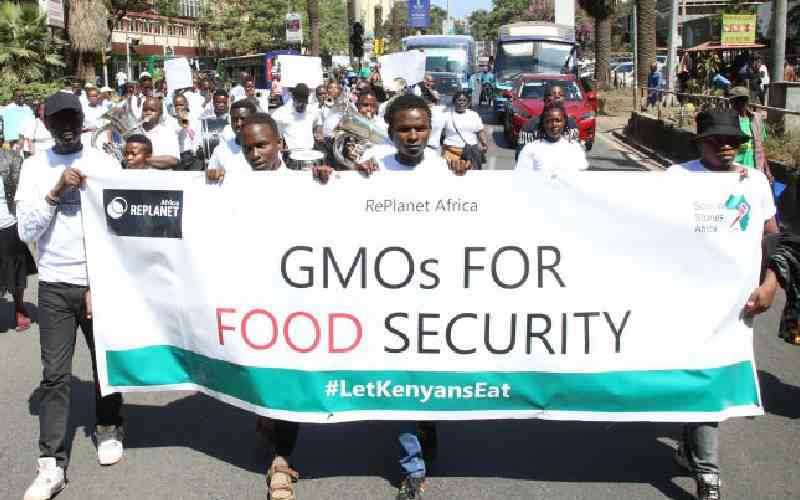×
The Standard e-Paper
Fearless, Trusted News

The debate on genetically modified organisms (GMOs) is gaining traction as more politicians jump onto the cart and spread awareness of the controversial technology.
John Kanyuithia, a Member of Parliament who is also an environmental scientist, says that while he was vehemently opposed to the idea a decade ago, he now feels "this is the best biotechnological advancement" Kenya could use to drag millions out of drought and poverty.